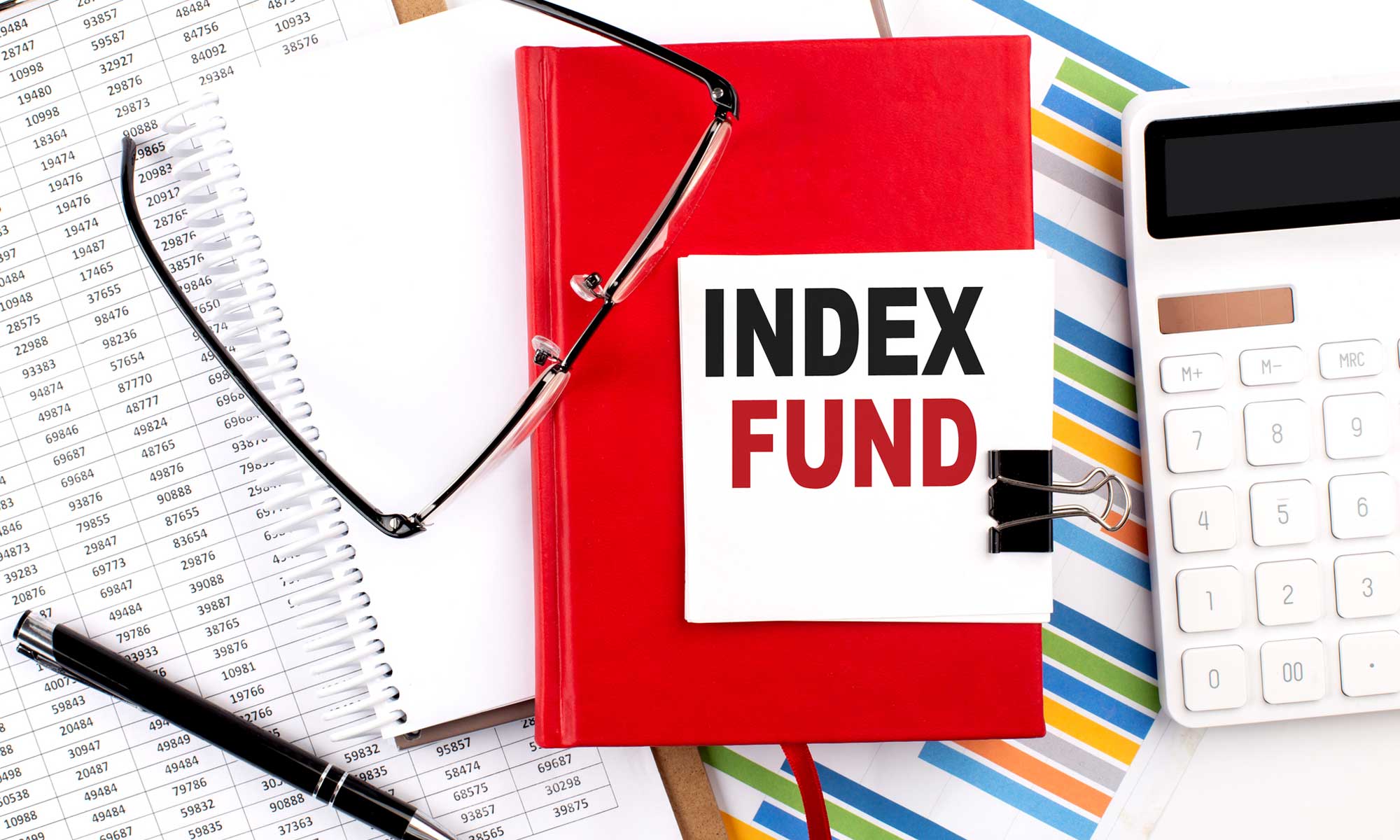An index fund is a passively managed mutual fund. They don’t try to find undervalued securities or actively trade in and out of stocks (or bonds, for bond index funds). They buy a portfolio of securities that replicates an index, such as the S&P500 Index. Then, they hold that portfolio, trading only when necessary (e.g., because a company was acquired by another company). Diversification, their “buy-and-hold” strategy, and low expenses enhance their performance.
There are both index mutual funds, and index ETFs (Exchange Traded Funds). The primary difference between them is that ETFs let you buy and sell during the day at intraday prices, while mutual fund transactions only occur at end-of-day prices (4 P.M. Eastern Time).
Index funds offer two major benefits: low expenses and diversification. You may want to invest in bank stocks but aren’t sure about which individual bank stocks to buy. Instead, buy a bank industry index sector fund. If you are bullish on small cap Japanese stocks, you can buy shares in a Japanese small cap index fund.
Different index funds track different indexes. The index may be domestic (U.S.) or international (e.g., EAFE, which stands for Europe, Australasia, and Far East, an index of all developed markets other than the U.S. and Canada). There are also stock index funds that track different industries, and different market sectors (e.g., large cap vs. small cap).
At the end of 2019, there were almost 500 U.S.-based index mutual funds managing $4.3 trillion in net assets, representing about 25 percent of total (index plus actively managed) U.S.-based mutual fund assets. In contrast, 96 percent of ETF assets were held in index ETFs.
THE LESSON
When deciding between index mutual funds and ETF’s, compare their expense ratios, avoid illiquid ETFs that have wide bid-ask spreads, and examine their past performance relative to their benchmark index. Diversify across different broad markets. If you want to select a market segment that you believe will outperform (like biotech), make a side bet and invest a small part of your portfolio in it. Be very careful before investing in commodity funds; they can perform erratically and unexpectedly. Also, avoid “leveraged index funds” that include inverse index funds that go up when stocks decline. Avoid 2X and 3X index funds and ETFs, which are supposed to rise or fall two to three times whatever the market does.
INVESTING SHOULD BE MORE LIKE WATCHING PAINT DRY OR WATCHING GRASS GROW. IF YOU WANT EXCITEMENT TAKE $800 AND GO TO LAS VEGAS.
– Paul Samuelson
A Nobel laureate in economics, Paul Samuelson gives us two options: You can invest, or you can gamble. They both come with risks, but with different types of risks. Gambling is unquestionably risky with predictable highs and lows that are not for the faint of heart. Stocks are priced so that you expect to make money. Gambling is set up so that you should expect to lose money.
Investors vs. gamblers.
According to the Las Vegas Convention and Visitors Authority, there were approximately 3.5 million visitors per month in 2019. During that same 12-month period, approximately 500,000 per month attended conventions.
Did every one of those people gamble? Don’t bet on it. Did most of those people gamble? That’s a good bet. Were any professional gamblers among them? That’s a sure bet. Were there some who played a slot machine and maybe a few hands of blackjack, then called it a night? Another sure bet.
Clearly, there are people who never gamble and see it as too risky, maybe even sinful. There are others who want to experience the “fun” of gambling, trying their luck while setting a limit on how much they could lose. Finally, there are those who will bet the farm on a consistent basis. Gambling to them is an addictive high.
If you are a gambler, index funds will put you to sleep, not because you find them restful, but because they bore you.
If you are an investor, you will find index funds an attractive option; they are not as volatile as your average individual stock.
Investing or gambling? Peace of mind or excitement? Security or adrenaline rush? Your long-term future or short-term entertainment? The choices you make go well beyond financial planning. They say something about how you live your life.
THE YIN YANG Of INDEX FUNDS
The New York Times reported (2/25/24) that, “In December for the first time, U.S. investors entrusted more money to index funds than to actively managed funds….”.
Because of this shift in investing, we offer the latest contribution to our #Yourtotalwealth BLOG. It’s a YIN YANG combination perspective on index funds: What they are and why they are attractive (YIN) and why some Investors still are emotionally driven to “playing” the market looking for stocks that are winners (YANG). Enjoy this creative perspective on index finds, and share it with friends, colleagues and clients.
Download the PDF Here: INDEX FUNDS for blog

